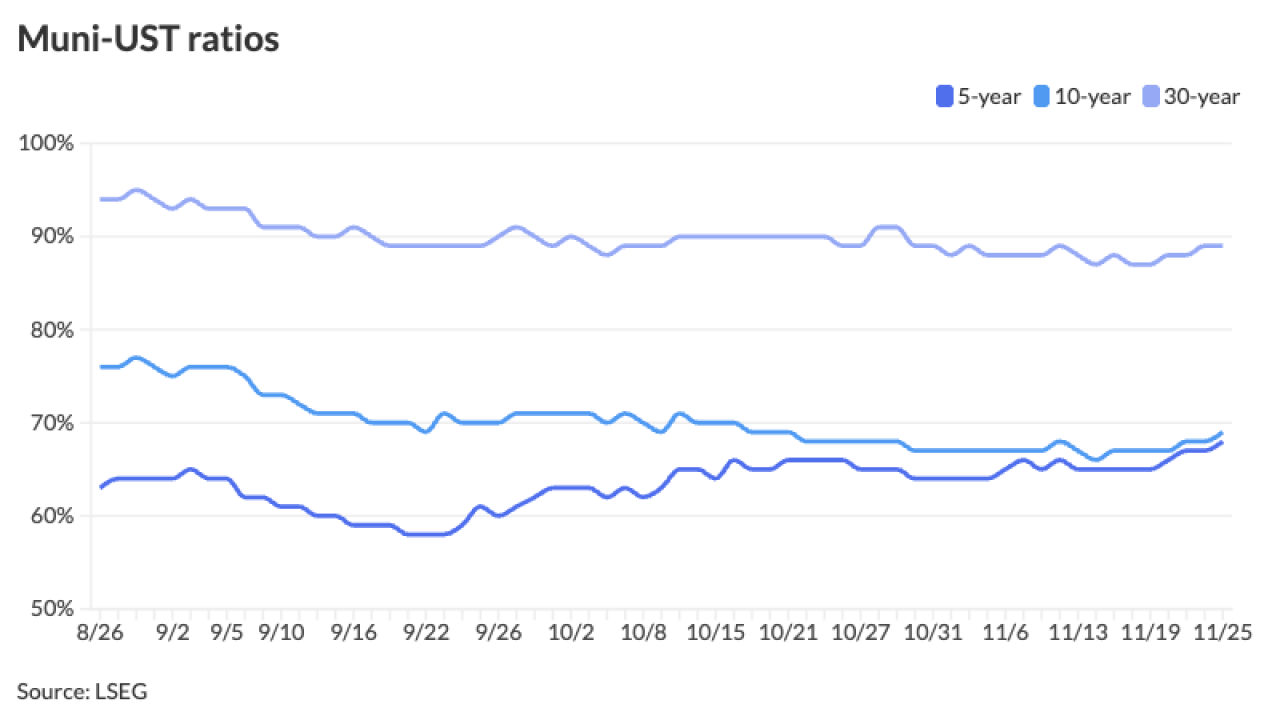
CHICAGO — Detroit and Syncora Guarantee Inc. said Monday they've reached a final settlement that is expected to accelerate the city's exit from the largest municipal bankruptcy in the U.S.
"This is a big day for Syncora and a big day for the city of Detroit," Syncora attorney Ryan Bennett, from Kirkland & Ellis LLP, told U.S. Bankruptcy Judge Steven Rhodes in court Monday.
The deal leaves bond insurer Financial Guaranty Insurance Co. as the only major holdout creditor in the case. FGIC and Syncora, which together guaranteed payments on $1.5 billion of pension certificates of participation, had aligned much of their legal strategy objecting to the plan.
FGIC asked Rhodes for at least a week delay to give it time to craft a new legal strategy in light of the Syncora settlement. The judge Monday afternoon was expected to grant at least a partial delay starting later in the week.
Syncora's settlement removes one of the largest obstacles to the city's goal of exiting bankruptcy by early October, shortly after Detroit Emergency Manager Kevyn Orr must leave his post. That would also conclude the trial before the November gubernatorial election that's expected to be at least in part a referendum on Gov. Rick Snyder's decision to push the city into Chapter 9.
"More than a year of litigation between Syncora and the city has now come to an end," Detroit's Jones Day attorney, David Heiman, said, according to local reports. "We've settled our dispute."
The settlement features a mix of cash, vacant property, and asset leases for Syncora. Detroit's Jones Day lead attorney, Bruce Bennett, called the deal a "very complicated and creative" solution.
On the financial side, the insurer is expected to recover 13.9% of its $390 million pension COP claim. The city will sell two note issues to raise just under $50 million of cash. The city said it would offer FGIC the same 13.9% recovery on its COPs if it settled, up from between 6% and 10% the city originally offered for the COPs.
In addition, Syncora will get a 30-year lease on a downtown parking garage and a 20-year extension on its operating lease for the Detroit-Windsor Tunnel.
It will also get vacant property surrounding the tunnel, which connects Detroit to Canada. A development agreement will give the insurer five years to buy various properties to develop for retail or housing, according to city attorneys. The insurer must redevelop the properties within 18 months of closing. The city will provide a list of properties Syncora can invest in as part of the deal by the end of Tuesday, lawyers said at the hearing.
The city's limited-tax general obligation bondholders and retirees still need to sign off on the deal, under a provision in their separate settlements with the city. Heiman told Rhodes that the city is making "good progress" with the creditors and believes they'll reach a deal.
The deal also depends on the willingness of UBS AG and Merrill Lynch Capital Services Inc. to agree to release Syncora from responsibility for payment on a series of interest-rate swaps that Syncora insures.
Detroit wants to file a seventh amended plan of confirmation reflecting the new accord as soon as Monday.
Separately, Syncora, in a four-page court brief filed early Monday, apologized to the case's federal mediators, who it had earlier accused of ethical conflicts and political biases.
"While we have already privately conveyed our apologies to Judge Rosen and the Drikers, the public nature of the mistaken claim demands both a formal withdrawal of that claim and, just as importantly, a public apology," Syncora said, referring to U.S. Chief District Judge Gerald Rosen, Judge Eugene Driker, and Driker's wife, who, as a board member emeritus of the Detroit Institute of Arts, the bond insurer had included as evidence of conflict.
The D.I.A.'s art collection was a central part of a "grand bargain" at the center of the city's bankruptcy strategy. "This was a herculean effort, and without Judge Rosen's steady hand and calm under pressure, the settlement would not have been achieved."
Rhodes a few weeks ago had threatened to sanction the insurer for the accusations. But Monday, the judge said the apology was sufficient.
Meanwhile, the confirmation trial continued Monday, with testimony delving into details of the city's pension liabilities and expected investment returns for the first time with questioning of Glenn Bowen, of actuarial firm Milliman.
Orr wants the two pension systems to assume a 6.75% return rate, a figure that challengers say is too low and inflates the debt's size, and therefore the recovery of the pensioners.
Rhodes asked Bowen if there is one correct return assumption that should be applied everywhere. Bowen said there was an accepted range but no one correct figure.
Jonathon Wagner, a Kramer, Levin attorney representing some of the certificate holders, noted in his cross-examination that Milliman recommended the city use a 7.2% rate, up from Orr's 6.75% recommendation.
Also Monday, the city's pension systems challenged the expertise of municipal finance restructuring professional Martha Kopacz, a witness hired by Rhodes to testify as to the feasibility of the confirmation plan.





